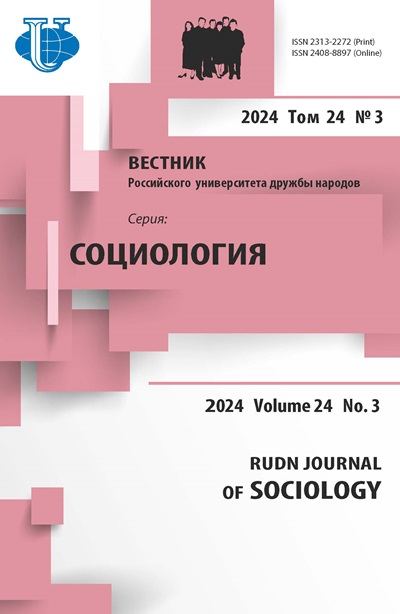David Hume and Otfried Höffe: Ideas about social justice
- Authors: Borisova PA1
-
Affiliations:
- Russian State University for the Humanities
- Issue: No 1 (2015)
- Pages: 19-29
- Section: Articles
- URL: https://journals.rudn.ru/sociology/article/view/6100
Cite item
Full Text
Abstract
The article examines in detail the ideas and interpretations of social justice developed by the German philosopher, professor of the historical and philosophical faculty of the University of Tübingen, one of the leading experts on political philosophy, Otfried Höffe. His theoretical ideas about justice were largely predetermined by the philosophical legacy of David Hume, namely by one of his main provisions that the idea and the very concept of justice is gradually formed in the views of certain social groups in the situation of material resources shortage. In particular, limited land resources are the main precondition for the emergence of property rights as a key format for embodiment and implementation of the social justice ideas. The author traces the development and increasing conceptual complexity of these ideas up to the notion of “conflict of interests”, so typical for contemporary societies where the idea of justice does not focus only on material resources. The author pays special attention to the model of “good” proposed by Höffe, which allows capturing perceptions of fairness in both interpersonal and institutional perspectives. In addition, the article provides empirical data that illustrate some Höffe theoretical ideas about social justice.
About the authors
P A Borisova
Russian State University for the Humanities
Email: polseal@yandex.ru
Chair of Applied Sociology
References













